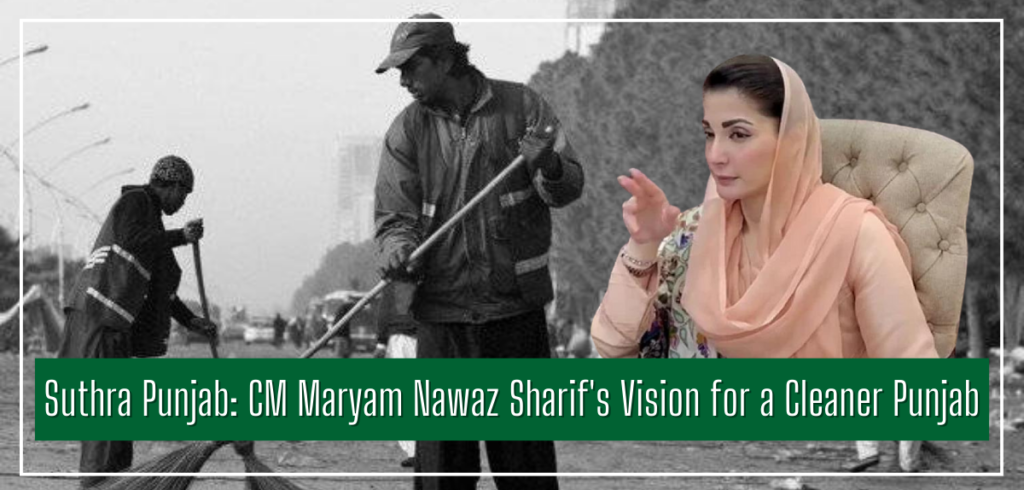In a bid to elevate the standard of living and infrastructure in Lahore, Punjab Chief Minister Maryam Nawaz Sharif recently unveiled an ambitious initiative titled “New Era Clean Lahore.” This comprehensive development plan aims to overhaul the city’s roads, sanitation systems, and public facilities within a strict three-month deadline.
At the helm of this initiative, Chief Minister Maryam Nawaz Sharif has pledged her personal commitment to overseeing the implementation of the plan, vowing to review progress every ten days. With a focus on cleanliness and infrastructure, the initiative promises to pave every major and minor road, install tuff tiles on streets, and restore 222,000 street lights across Lahore.
In a statement emphasizing the importance of community involvement, Chief Minister Maryam urged citizens to support the government in its cleanliness drive. This collaborative effort underscores the shared responsibility in ensuring a clean and vibrant environment for all residents.
Furthermore, the initiative extends beyond mere aesthetics to address critical issues such as drainage and sewerage rehabilitation. With a detailed plan presented by the Water and Sanitation Agency (WASA), the project encompasses the construction and repair of infrastructure across nine zones in Lahore. The directive to make all water filtration plants functional underscores the government’s commitment to providing clean and safe drinking water to citizens.
Additionally, Chief Minister Maryam Nawaz Sharif emphasized the need for strategic expansion, directing WASA to present a phased increase in its jurisdiction. This proactive approach ensures that infrastructure development keeps pace with the city’s growing needs, with a focus on efficient water management and resource allocation.
In a testament to her inclusive governance style, Chief Minister Maryam engaged with Members of the Provincial Assembly (MPAs) to address public concerns and development needs across Punjab. By soliciting their feedback and recommendations, she demonstrated a commitment to responsive and accountable leadership.
The success of previous initiatives such as the Ramadan Nigahban Package and “Suthra Punjab program” further underscores the government’s dedication to improving public welfare. With plans underway to provide free medicines and establish mobile hospitals in remote areas, Chief Minister Maryam Nawaz Sharif reaffirmed her commitment to accessible healthcare for all citizens.
Looking ahead, the government’s agenda includes the expansion of safe city projects and the implementation of a comprehensive solid waste management system across Punjab. Moreover, initiatives such as providing motorbikes to students and constructing housing units for low-income families highlight a holistic approach to addressing the diverse needs of the population.
In conclusion, Chief Minister Maryam Nawaz Sharif’s vision for a cleaner and prosperous Lahore exemplifies a proactive and inclusive approach to governance. Through strategic planning, community engagement, and a relentless pursuit of excellence, the government aims to transform Lahore into a model city for the region, setting a precedent for sustainable urban development and social progress.

